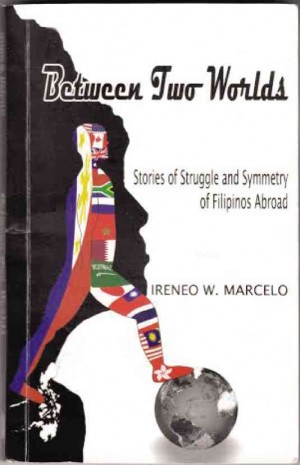
On Mother’s Day in 2012, Helen, a Greek who cleans Decoyna’s room twice a month, left an envelope with her name on it. It contained 20 Australian dollars (P850) and a note that read: “Jovie, it’s for your mom. Tell her to buy a cup of coffee for herself.”
Decoyna, a nursing board exam topnotcher in 2008, was surprised as she had not told Helen anything about her mother, but she thanked her anyway. She sent the money to her mother, explaining to her where the money came from.
After serving as a staff nurse for almost three years at Benguet General Hospital in La Trinidad town, Benguet’s provincial capital, Decoyna went to Melbourne in 2012 to work at Cabrini Health, a nonprofit hospital in Melbourne.
Just before Christmas that year, Helen came to the ward where Decoyna was assigned and left boxes of homemade biscuits and an envelope containing some money—again for her mother. When Decoyna asked Helen why, she said: “I just want to thank your mom because you’re good to me; you’re my friend.”
Touched
“I was so touched and felt loved by this woman who gave little money she had to the woman who gave birth to me as a sign of gratitude,” Decoyna said.
Her story is one of 45 pieces of short narratives in the newly launched book of Ireneo Marcelo, a former teacher, who worked as an English language instructor at Armed Forces Hospital at King Abdul Aziz Airbase in Dhahran, Kingdom of Saudi Arabia. He now teaches in one of the colleges in Saudi Arabia.
Born to Igorot farmers from Kibungan and Kapangan towns, Marcelo, 34, was managing editor of the Mountain Collegian, Benguet State University’s campus paper, and editor of The Blue Courier, the College of Teacher Education newsletter.
Marcelo said the drive to share the stories of fellow overseas workers prompted him to write his first book.
Published and edited by ResearchMate Inc., a nonprofit private organization, the 142-page book, “Between Two Worlds: Stories of Struggle and Symmetry of Filipinos Abroad,” was launched in La Trinidad, recently while the author was on vacation.
Decoyna also shared her encounter with a brain cancer patient. “I remember him saying to me while I was helping him when he was vomiting, ‘I hope you know how special you are,’” she said.
She said she had to be tough and patient as her job is difficult, and had to endure what she called “explicit and implicit discrimination in the form of subtle remarks” she experiences as a migrant worker.
Decoyna said it was “a blessing to encounter people in such a beautiful and personal way, especially when they were at the lowest point in their life.”
Real-life drama
Marcelo’s stories came mostly from fellow workers in the Middle East, each filled with real-life drama and some are confidential the author could only use their first names or nicknames.
Some tales came from friends from other countries, whom the author interviewed via e-mail or social networking sites.
There was Manny, who was forced to work in Saudi Arabia. Already doing well as a civil engineer in the Philippines, he was forced to work abroad to pay the people whom his wife recruited to a networking company.
There was Armand, an aircraft engineering graduate who grabbed a driving job in Saudi. He augments his income by teaching tennis during his free time.
There was Marcel, an OFW in Malaysia, whose fidelity to his wife was tested when he met Edna, a married Malaysian and fellow worker, when their boss invited them to a beach party.
The author’s stint abroad itself was filled with drama. One time, he received a call from his sister, informing him that his only daughter, Irish, died in a vehicular accident on May 30, 2013.
“With that sad news, the hot temperature [in Saudi Arabia] couldn’t stop the cold creeping to envelope my body,” he wrote. “Losing a daughter is like losing your life, too.”
Life must go on
Despite the loss, Marcelo said life must go on as he dedicated his first book to his daughter. “I still have my two sons. They are my life and the reasons why I still sacrifice working in [Saudi Arabia],” he said.
Marcelo, according to ResearchMate, succeeds in telling his stories about many OFWs “who embark on a journey hoping for a brighter future, with diverse challenges and success, with one foot in the world and another foot left with their families in the Philippines.”